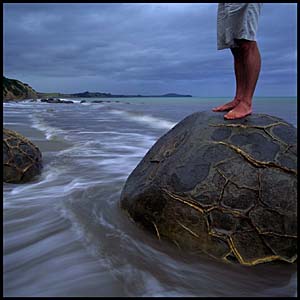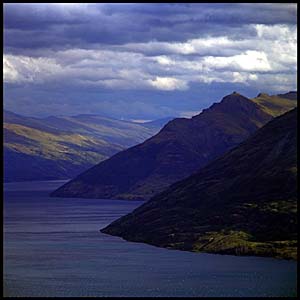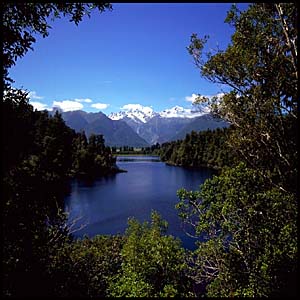- 26,000,000 B.C.: Southern alps rise above the ocean.
- 700 A.D.: possible early settlement on the South Island by an archaic Maori population originating in Polynesia
- 10C: date of discovery of New Zealand by Polynesian navigator Kupe according to Maori legend. Islands named Aotearoa, "Land of the Long White Cloud"
- 12C: settlement of the North Island
- 13 and 14C: "Great Migration" from the Society Islands. Dwindling moa population. Warrior society established.
- 1642: Dutch explorer Abel Tasman discovers west coast of the South Island. Dutch name the country "Nieuw Zeeland" after the Dutch island province of Zeeland.
- 1769-70: Captain James Cook circumnavigates and charts both islands, taking possession of "New Zealand" for Britain.
- 1820s: first European settlement (in the Bay of Islands)
- 1830s: intertribal wars abate due to introduction of musket and wholesale slaughter
- 1840: Treaty of Waitangi signed. Maoris cede sovereignty to Britain, obtain guarantees of land ownership and "rights and privileges of British subjects."
- 1850-1880: "wool period" with importation of sheep from Australia. Also a period of war and conflict over land ownership.
- 1882: Refrigerated ships introduced. Farmers turn to meat and dairy production.
- 1893: New Zealand becomes the first country in the world to give women the vote.
- 1914-1918: One of every three men between 20 and 40 killed or wounded fighting for Britain in World War I.
- 1939: New Zealand sends troops to fight for the Allies in Europe.
- 1941-45: Threatened by Japan, defended by United States Navy (eventually led to ANZUS pact in 1951, a defensive alliance with the U.S. and Australia)
- 1947: New Zealand becomes independent by adopting Statute of Westminster.
- 1973: Britain joins European Economic Community and adopts their trade barriers to New Zealand's agricultural products. Combined with high oil prices, this was enough to devastate the economy.
- 1973-1984: Robert Muldoon's National Party expands welfare state and government interventionism, running huge budget deficits financed with overseas money. High inflation and unemployment cause massive emigration to Australia.
- 1975: Treaty of Waitangi Act passed to settle Maori land claims on the basis of original treaty.
- 1984: New Labour government eliminates agricultural subsidies and wage and price controls, lowers tax rates, begins a radical program of privatization.


